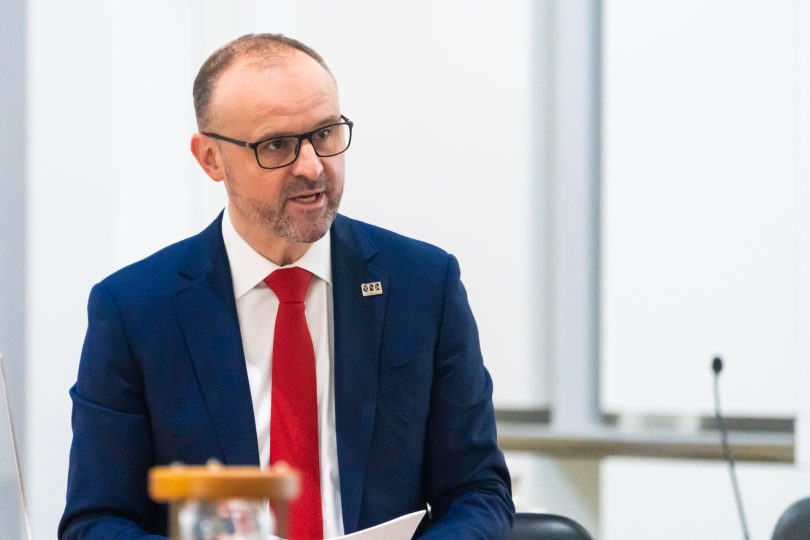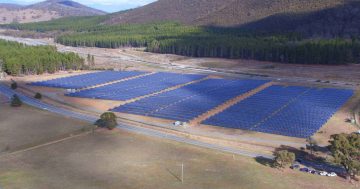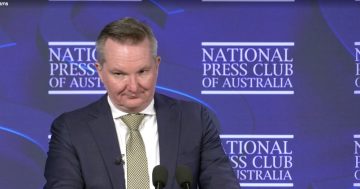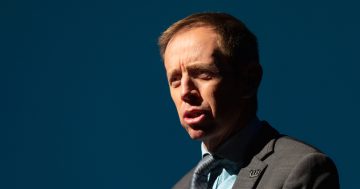
ACT Chief Minister Andrew Barr says Prime Minister Scott Morrison has set the bar very low on net-zero emissions. Photo: File.
The Federal Government’s climate change plan contains no new policy and lacks any substantive initiatives for reaching net-zero emissions by 2050, according to ACT Chief Minister Andrew Barr.
Mr Barr, who is also ACT Minister for Climate Action, said Prime Minister Scott Morrison has set the bar very low and Australia in effect had already adopted this objective in signing the Paris Agreement five years ago.
The Federal Government has left the heavy lifting to the state and territory governments, which have led the country on addressing climate change during the past eight years, said Mr Barr.
He said the lack of detail and the refusal to release any modelling with the plan, which includes investing more than $20 billion in ‘low emissions technologies’ in the next decade, is a concern.
Mr Barr was particularly dismissive of the inclusion of the unproven carbon capture and storage technology, which it is hoped could cut the emissions of coal and gas-fired power stations, energy intensive industries and gas fields.
“I expect this will be another example of the ‘sunk cost fallacy’ [throwing good money after bad] for the economic textbooks of the future,” he said.
Mr Barr said the ACT wanted to see new policies that would make a real difference.
These include the introduction of fuel emissions standards, and targets for electric vehicle new sales.
Mr Barr said there should have been a more ambitious target for reducing emissions by 2030 than the 26-28 per cent on 2005 levels the government is sticking to, and dates for phasing out coal production in the National Electricity Market.
There should also have been additional investments in technologies such as large-scale battery storage and green hydrogen; a training fund to reskill workers in affected industries; and incentives to assist households and businesses to lower their emissions profiles.
Mr Barr questioned whether the Morrison Government is genuine about tackling climate change and global heating.
Asked whether the Federal Government had been forced into adopting the 2050 target by the warnings from international finance markets, Mr Barr said: “The public statements of senior Federal Government ministers speak for themselves.”
He may have been referring to Minister for Industry, Energy and Emissions Reduction Angus Taylor, who has always emphasised the difference between net zero and ‘absolute zero’.
“If your goal is absolute zero, you want to wipe out any industry with any emissions; that means agriculture, that means mining, that means fossil fuels – they have all got to go,” he told the ABC.
“Our goal is net zero, and net zero means that we can still have an agriculture sector, and we’re still going to have gas as an important part of the mix for many years to come.
“That’s appropriate because you simply can’t wipe out these industries and expect the economy can keep functioning; jobs can continue to be created, and we can have the balance in the electricity grid that we need.”
Minister for Agriculture, Drought and Emergency Management David Littleproud, from the National Party, told Sky News that coal miners are not “shuddering in their boots”.
“Our technology roadmap will keep you in work well beyond 2030, well beyond 2040, and probably towards 2050,” he said.
“And if carbon capture storage is taken up not just here in Australia but around the world – your kids could have a job in a pit – that’s the sort of work we’ve been trying to work towards.”
Nationals leader and Deputy Prime Minister Barnaby Joyce apparently signed up to the plan despite telling his party room he opposed it, but not before extracting billions of dollars worth of concessions.





















